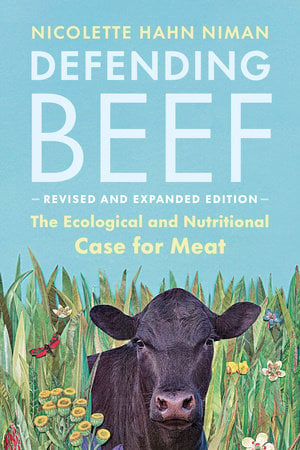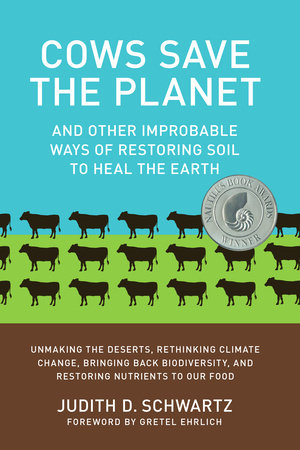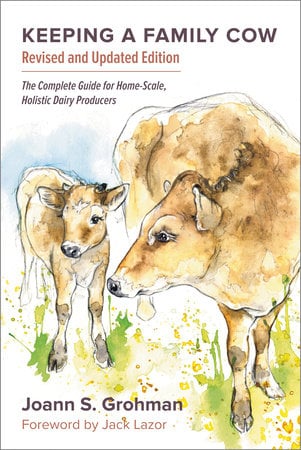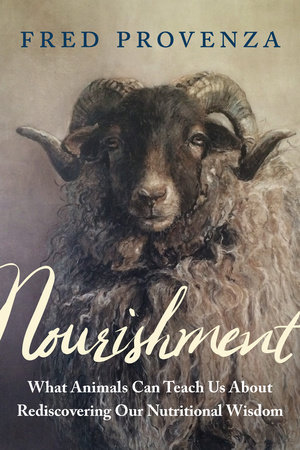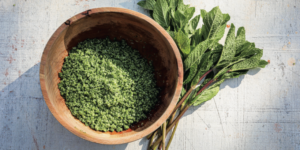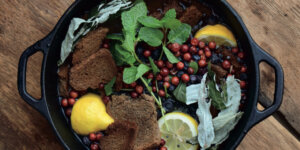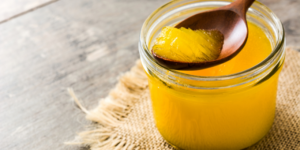The Case for Beef
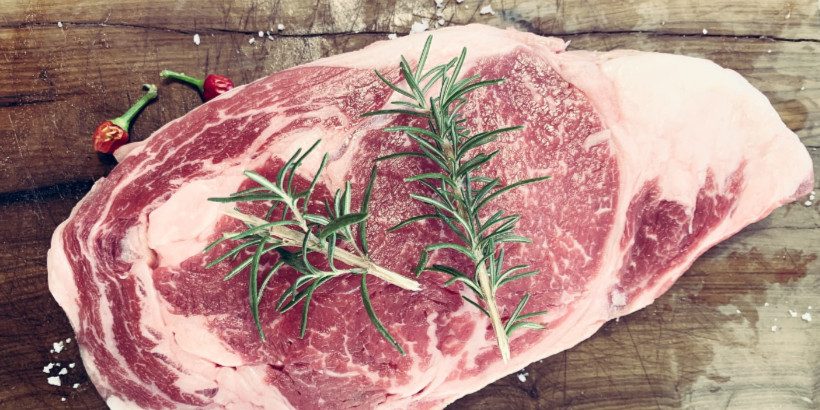
The narrative on beef is constantly changing. From paleo to veganism, we are continually told conflicting information about the healthiness of beef and whether or not it should be in our diets.
Former vegetarian and environmental lawyer turned rancher, Nicolette Hahn Niman, makes the following case for beef: “I also firmly believe a person should get as much nourishment as possible from food. Not pills, powders, or liquids concocted in laboratories. Real food. Food made by collaborative efforts of sunlight, water, and soil. At times supplements may be helpful or even necessary. But to me, prolonged reliance on manmade supplements signals an unhealthy diet, one that cannot lead to vigorous health over the long term.”
The following is an excerpt from Defending Beef by Nicolette Hahn Niman. It has been adapted for the web.
Beef is Good Food
Theories abound about what we ought to eat and why. We are told everything from that we should never eat meat to that an all-meat diet is best. For my part, I find the following straightforward idea most credible:
We should eat what our bodies evolved to eat.
Ancestors of modern humans began consuming animals at least 2.6 million years ago. They started eating substantial amounts around 1.5 million years ago.3 Our brains increased in size both because of meat’s rich nourishment and because of hunting’s inherent complexities. Over millions of years, eating meat has been interwoven into the very fabric of our evolution.
Being omnivores has been a tremendous survival advantage. On the opposite end of the spectrum are koalas, pandas, and monarch butterflies. Each can survive only on a narrow range of foods. If those specific food sources are wiped out, their extinction is assured. We humans, by contrast, are highly adaptable. We can thrive on tens of thousands of plants, animals, and fungi. Our diets have always varied widely, closely reflecting the climate and geography in which we reside. Every group of humans around the globe has always eaten from a smorgasbord of local offerings that differs considerably from those of other regions.
I do not believe in any one, hard-and-fast dietary dogma (in fact, I find most rigid diets a bit silly). But I think it’s clear our bodies benefit greatly from eating the animals of the field, as our ancestors before us did for countless generations. Bison, antelope, moose, alpacas, yak, gazelles, deer, elk, camels, and caribou are all grazing animals uniquely able to live from grass and other cellulosic plants on which humans themselves cannot survive. So are cattle. Like other grazing animals, cattle, symbiotically with microorganisms, miraculously convert those plants into milk and flesh, which are jam-packed full of essential nutrients. And in contrast with those found in plants, nutrients in bovine milk and meat are uniquely usable by the human body. (More about this momentarily.)
I also firmly believe a person should get as much nourishment as possible from food. Not pills, powders, or liquids concocted in laboratories. Real food. Food made by collaborative efforts of sunlight, water, and soil. At times supplements may be helpful or even necessary. But to me, prolonged reliance on manmade supplements signals an unhealthy diet, one that cannot lead to vigorous health over the long term.
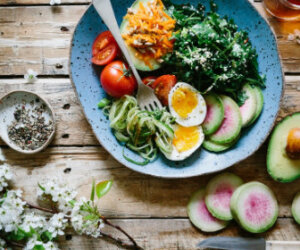
Finally, real, minimally processed foods also hold various protective compounds (“whole foods contain other substances important for good health,” including phytochemicals and antioxidants).5 In Nourishment, Dr. Provenza even argues that these “secondary compounds” may be the most important parts of our diet for maintaining health and fighting off disease. Increasingly, the ancient wisdom of eating a diversity of whole, unprocessed foods is regarded as the key to good nutrition. Dr. Yudkin would have been pleased.
Despite the annual avalanche of books and articles telling us what to eat, nutrition science is in its infancy. More is unknown than known. To me, this gap in our understanding is the most compelling reason to aim for a diet rich in essential nutrients. We simply don’t know whether dietary supplements can ever adequately replace the nutrients our forebears derived from foods. New York University nutrition professor Marion Nestle notes: “Clinical trials rarely show much benefit from taking [nutritional] supplements and . . . sometimes they show harm.”6
I was fortunate to have gotten off to a solid start. My parents considered exercise and eating well the fundamentals for good health. My mother took great care in feeding us. She spent a lot of time with her garden, made frequent trips to local farms, cooked every dinner from scratch, baked bread, canned fruits, made yogurt. She taught her children how to grow, preserve, and prepare food. She also showed us, every day, the simple pleasure of sitting around the table with those you love, sharing conversation and a hearty, homecooked meal.
I strive to have my diet grounded on fresh and fermented foods— well raised, locally sourced, and simply prepared. Over the past decade, after passing the 40-year mark, I consciously increased eggs and dairy products to get more good fats and protein. Simultaneously, I reduced my sweets and flour. I spent a year from 2013 to 2014 on a “sugar fast,” in which I abstained entirely from anything with added sweeteners. I eat more fruits, greens, and vegetables than ever. I include plenty of fats and fatty foods—including nuts, avocados, olive oil, coconut oil, and butter—and I consider them essential to good health.
I have always consumed bovine milk and fat in the form of liquid milk, yogurt, cheese, butter, and, of course, the occasional bowl of ice cream. But I refrained from eating meat for over three decades. This included 16 years while married to a cattleman and living and working on a ranch. Understandably, this often surprised people. But last year I changed that part of my diet, as well. When I turned 50, I began to re-evaluate my diet. I wanted to make sure I was doing everything possible to stay in optimal health. Bone loss worried me. Muscle loss worried me. Weight gain worried me. Those were all things I read about and saw all around me in women in their 50s. I was starting to experience them, too. My weight had increased, my muscles were shrinking. I had my bone density tested at Kaiser Permanente and was alarmed to learn I had osteopenia, the pre-cursor to osteoporosis.
As an environmental lawyer, rancher, and student of sustainability, I had come to view animals as an essential part of an environmentally optimal food system. As a researcher of nutrition, I had come to consider omnivory the ideal human diet. For years, I had been brushing away the quietly gnawing feeling my own vegetarian diet was less than optimal. I continued following a meatless diet, partly from habit. I didn’t feel a physical urge to eat meat so it was easy to believe my body did not need it and just stay the course. If I’m perfectly frank I also didn’t feel like mustering the energy to grapple with the implications of abandoning a diet I’d strictly followed for so many years.
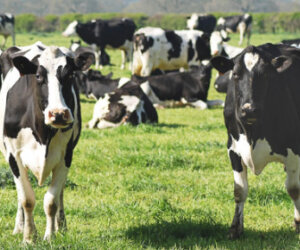
Obviously, as someone who lived more than three decades as a vegetarian, I respect a person’s choice to abstain from meat. But if a person’s rationale for not eating beef is based on a belief that it’s necessarily bad for the environment or human health, it’s probably poorly informed. Nothing about cattle raising is inherently harmful to the environment. Ecological injury from cattle is due to poor management. Similarly, fears that beef is bad for our health are proving unfounded. The benefits of eating meat, on the other hand, have been known since ancient times.
“Our primitive ancestors subsisted on a diet composed largely of meat and fat, augmented with vegetables, fruit, seeds and nuts,” Sally Fallon writes in her book Nourishing Traditions. “Studies of their remains reveal that they had excellent bone structure, heavy musculature and flawless teeth.” Fallon points to a wealth of anthropological and archeological research showing the meat- and fat-laden diets of early and traditional peoples contributed to their vigor. Early Mayan remains, from the time when meat was readily available, show adult male skeletons averaging eight centimeters taller than later remains, when meat became scarce. Russians in the Caucasus Mountains, who have the highest proportion of centenarians in the world, consume ample fatty meats and dairy. Populations in Soviet Georgian with the most meat and fat in their diets are those with the greatest longevity. “Equadorans from Vilcabamba, also known for their long lifespans, favor whole milk and fatty pork,” Fallon explains.7
None of this is surprising, according to Fallon, because without animal products it is difficult to obtain adequate protein and minerals in a form the body can use. Animal-based foods not only supply protein and minerals, they provide the necessary fat-soluble catalysts needed for mineral absorption. “Zinc, iron, calcium and other minerals from animal sources are more easily and readily absorbed.”8
Modern nutrition science, as imperfect as it is, has helped document many of beef ’s benefits. A 2013 article in The Guardian calls beef “one of the most nutritious foods” available, noting “beef has appetite-sating high-quality protein, which has all the essential amino acids needed (isoleucine, leucine, lysine, methionine, phenylalanine, threonine, tryptophan, valine and more) to build muscle and bone.” Beef, it points out, is also a great source of B vitamins, iron, and zinc.9 To that list I would add vitamin D, found in very few foods, yet available in the most bio-available form in beef liver.
Notes
3. B. Pobiner, “Evidence for Meat-Eating by Early Humans,” Nature Education Knowledge, 2013, www.nature.com/scitable/knowledge/library/evidence-for-meat -eating-by-early-humans-103874273.
4. “Iron: Dietary Supplement Fact Sheet,” a National Institutes of Health fact sheet, reviewed April 8, 2014, http://ods.od.nih.gov/factsheets/Iron-HealthProfessional.
5. “Supplements: Nutrition in a Pill?,” website of the Mayo Clinic, January 19, 2013, www.mayoclinic.org/healthy-living/nutrition-and-healthy-eating/in-depth /supplements/art-20044894.
6. M. Nestle, What to Eat (North Point Press, 2007), 468.
7. Fallon, Nourishing Traditions, 27.
8. Fallon, Nourishing Traditions, 27.
9. J. Blythman and R. Sykes, “Why Beef Is Good for You,” Guardian, December 13, 2013, www.theguardian.com/lifeandstyle/2013/dec/16/ why-beef-is-good-for-you-grass-fed-grain-fed.
Recommended Reads
Recent Articles
Searching for a new way to utilize seasonings? Look no further than mint salt! This game-changer is bound to mix up the way you season meals in the future.
Read MoreHow do mushrooms grow? What exactly is a mushroom? These answers can be found in the intricate, web-like fiber found underneath these fungi: the mycelium.
Read MoreFire Cider is great for stimulating digestion and warming you up from the inside out, no matter the season. This beverage can be prepared in water or tea as desired.
Read MoreReady to shake up your fermentation game? Try making Kvass, the ultimate beginner-friendly recipe! This nourishing beverage calls for just a few simple ingredients and only takes a couple of days to ferment. It’s easy, delicious & perfect for beginners.
Read MoreStart your journey to making homemade ghee! Discover how to make this delicious staple and incorporate it into delicious recipes — like our Citrus-Glazed Chicken recipe. Get ready to level up your cooking game with homemade ghee!
Read More

